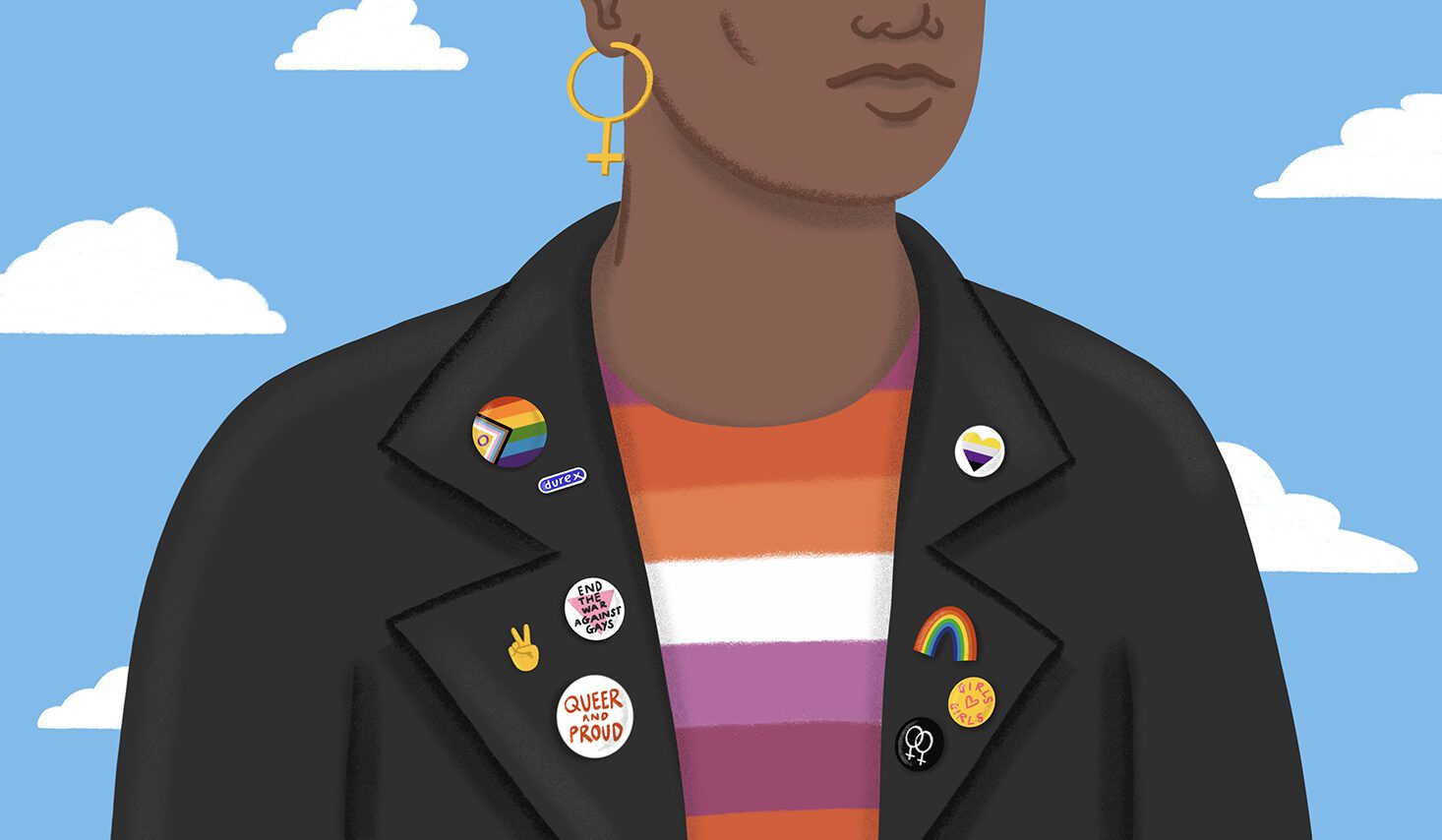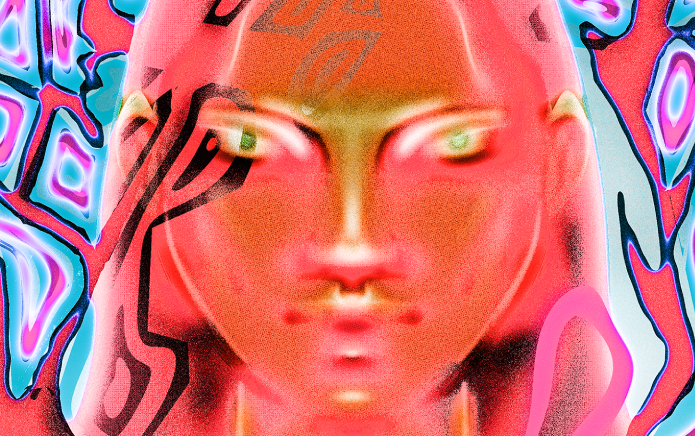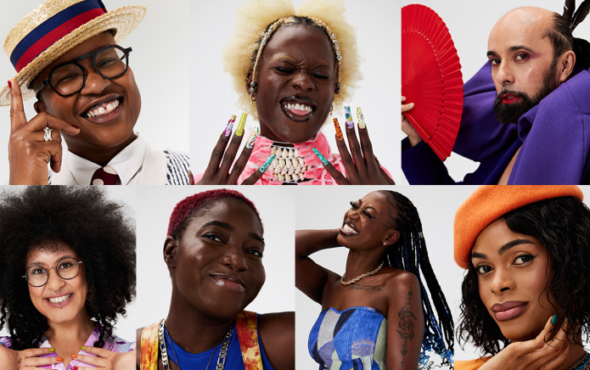
Intimate wellness brand Durex recently released the findings of its #MySexMyWay survey, a first-of-its-kind piece of research conducted earlier this year. The research sought to directly understand the experiences of LGBTQ+ people, revealing both the positive aspects of queer sex, but also the challenges we still face. GAY TIMES has teamed up with Durex to spotlight three young queer writers speaking of their own sexual experiences and how the findings of the #MySexMyWay survey reflect their own journeys, as a way to support others. You can find out more about the survey & results here.
When I was 9 years old, I watched Coronation Street religiously. I begged my parents to extend my bedtime so I could nestle between them on the couch for the nightly episode. I had no great interest in Manchester’s post-industrialisation working class community, but the show featured a lesbian couple, Sophie and Sian, and their storyline spoke to something within me that I didn’t yet know how to articulate. It was the first time I saw a queer relationship and I was fascinated. Prior to that point, the world as I knew it was divided into two – mummies and daddies – there was no alternative, and everyone fitted neatly into a camp.
A few years down the line, I felt the churn of butterflies in my stomach when my best friend braided my hair. I sat close to her as we watched films in her bedroom, thinking about how much I wanted to hold her hand. I remembered Sophie and Sian and my heart sank as I realised what this meant for me. Hours later, I trembled in front of my laptop as my fears were confirmed in a garish pink font – the results of the ‘Am I gay quiz’ were in: I am. I swiftly cleared my search history and got into bed. During my nightly prayer, I asked God to, one day, let me fall in love with a man. Durex’s nationwide sex-positive survey, #MySexMyWay, revealed that 75% of LGBTQ+ people feel proud of who they are but for a long time, I wasn’t one of them.
The sex education I received in school did little to prepare me for the big emotions I was attempting to process. In primary school, the boys and girls in my class were separated; the boys discussed wet dreams and vocal changes, while, in the classroom next door, I checked my legs for stubble as my teacher explained we would begin sprouting body hair and it was our duty to ‘get rid of it ASAP’. Months into my all-girls secondary school, permission slips and giggles spread across the playground, signalling the commencement of sex education classes. I was quietly excited by the prospect that I would be offered advice on what I was going through. When the lessons began, I entered the assembly hall with my year group and was greeted by a photo of genital herpes blown up and splayed across the smartboard. The room filled with a mixture of laughter and cries of disgust. My hopes were quickly dashed as I realised this “educational” day probably wasn’t going to help me.
The sex education I received in school did little to prepare me for the big emotions I was attempting to process.
That afternoon, our school had hired an external company hoping that students would feel more comfortable discussing sex with someone removed from the faculty. Multiple topics were covered in our one-day whistle-stop tour that rushed through a year’s worth of content. I learned how to put a condom on a penis – a skill that, as a lesbian, I haven’t yet called upon. When the topic of queer women arose briefly during a discussion of potential sexual partners, I held my breath awaiting an elaboration that never came. Someone near me in the audience sniggered and jammed their fingers together in a scissoring motion. I swallowed my discomfort and laughed at the joke in fear of outing myself by protesting. I can’t disparage the utility of all we were taught, however, the different methods of contraception available were deftly explained and we were also told how to access abortions and sexual assault referral clinics if needed. But, on the bus home, as I wiped remnants of lube from my hands onto my blazer, I was disappointed. The afternoon had the potential to assuage my fears and reassure me that what I felt was normal, but it hadn’t. Instead, as a Durex survey revealed, I was one of the 86% of LGBTQ+ people who felt their sex education was not relevant to them. Heteronormativity had dominated the day and I still felt dirty and wrong for the gay thoughts I was harbouring. Same Love by Macklemore was in the charts at the time, so I plugged my earphones into my phone and sat ruminating for the rest of the ride home.
According to Durex’s largest UK LGBTQ+ sex survey, 80% of LGBTQ+ people worry about discrimination. As a teenager, I felt this fear viscerally. When I watched Coronation Street as a child, the characters’ queerness was normalised to me; I hadn’t fully understood the social impact of what was then a transgression. But as a teenager, I was becoming rapidly aware of the prevailing societal attitudes towards queerness, and I wanted nothing more than to be straight. Keeping the way I felt a secret doubled the weight of the burden. I withdrew from my parents and began to resent them, fearing that their love for me would vanish once I spoke my truth. I became distant with friends as I no longer felt comfortable being tactile with them like usual. Miserable and spending too much time alone in my bedroom, the internet became my solution. I compensated for my loneliness through late-night scrolling, I trawled web pages searching for answers to my questions or simply a distraction. One evening my searching led me to a coming out video filmed and uploaded by Hannah Hart, a then 25-year-old content creator from California.
This was in the glory days of YouTube; audiences were relatively small, allowing creators and fans to interact directly via the comment section. Influencer culture hadn’t yet taken a stronghold, meaning videos bore a homemade quality that fostered intimacy and authenticity. I listened as Hart discussed the complexity of trying to assimilate her gayness with her Christian upbringing. My ears pricked up as I recognised the similarities in our positions. She spoke frankly but also with a levity that put me at ease. I browsed the rest of her channel and found videos of her cooking and spending time with friends. Her life seemed fun and normal. She didn’t plaster on a smile or downplay her pain but equally, she wasn’t bogged down under the weight of it. It made me feel validated and hopeful. I clicked play on another video of hers, then another, then one more. The process became a nightly ritual, each time I discovered a new queer creator whose story I related to. I found Rose and Rosie, Cammie Scott, MilesChronicles and a host of others until I had developed my own queer canon. Each video I watched loosened the knot of shame in my gut.
I joined Tumblr where, under a pseudonym, I was free to express my queerness. I spent hours clicking through blogs, immersing myself in different gay subcultures. I watched more LGBTQ+ TV shows, then continued the story by avidly reading fanfics created by other queer supporters. I shared my thoughts on plotlines and characters and other bloggers responded with warmth and enthusiasm. I gained mutuals – followers with whom I interacted regularly – and I spent my evenings discussing the latest events in the celesbian YouTube sphere with them. I was doing all the things typical of a teenage girl, gossiping and crushing hard over celebrities. Where were you when Hayley Kiyoko dropped the Girls Like Girls music video? I was in my bedroom, excitedly blogging alongside a horde of other 14 year-olds overjoyed to see a star from our childhood so proudly expressing her queerness. I thought being gay would prevent me from being able to share these moments with others and I didn’t believe that anyone else could relate and indulge with me, but the internet proved me wrong. Each corner of the internet I stumbled upon helped me learn to love my gayness.
Through being online, I was also able to fill in the gaps left by my poor sex education. Online sex educator Stevie Boebi offered me practical answers to questions I had whilst emphasising the importance of consent and pleasure. At the time, same-sex marriage was being hotly debated in the UK and elsewhere, I spent hours reading and learning about prominent works of gender and sexuality theory. The internet wasn’t perfect and, at times, I could have been more judicious in the opinions I decided to share, but it offered me a safe space to do this. I soon learned that a “chosen family” is a term that is commonly shared in queer spaces. I’ve never really understood what it meant, but when I think of my past Tumblr blog and the people I interacted with, it makes sense. While those in my life were not able to give me the support I needed, I found comfort in an online community of strangers who soothed me and told me I was okay. I felt seen and I felt held.
I found comfort in an online community of strangers who soothed me and told me I was okay. I felt seen and I felt held.
After years spent engrossed in my virtual world, I slowly began to feel more comfortable with who I was. I no longer requested a husband in my prayers, instead, I asked God to help me love myself. When I finally felt ready to bring my online persona offline and tell the people in my life about my sexuality, the internet held my hand throughout the process. I read posts that reminded me that it was my decision and I wouldn’t be any less valid for deciding against going through with it. The internet even did the grunt work for me at times; prominent lesbian YouTuber Ally Hills made a coming out song specifically designed to let the recipient know that the sender was gay. I remember nervously sending the link to the friends I was most comfortable with and breathing a sigh of relief as they replied with rainbow emojis and smiley faces.
54% of LGBTQ+ people have suffered from mental health issues due to their sexual identity, according to Durex’s survey. Across my lifetime I have seen society become more inclusive, but issues remain and coming to terms with queerness can still be an isolating and daunting process. Accepting my gayness was not an easy journey and I’m not sure if that journey will ever be complete. But today I am a person I think my 14-year-old self would be proud of and I owe that, in part, to her and the hours she spent online working to understand herself. As new mediums like TikTok gain prominence, today’s LGBTQ+ teens are using the platform for self-expression. It heartens me to know that across generations, the method may change but queer children continue to carve out spaces where they are able to be themselves. Still, there is work to be done – a glance in the comment sections of some of these TikToks reveals that society is still marred by homophobia and transphobia; an issue reflected by the fact that just 13% of LGBTQ+ individuals currently feel society is accepting of the LGBTQ+ community. There is more to be done, through education and compassion we must create a more tolerant society. In the meantime, I hope that the next generation of queer teenagers use the online spaces available to them to reach self-acceptance quicker than I did.
Sometimes, I wonder if, when I’m older and my body isn’t as mobile, I’ll regret the amount of time I spent staring at screens instead of out exploring the world. But at that time in my life, I think the world behind my screen was exactly the one I needed to be exploring. I found solace in a network of people just like me and so I want to say ‘Thank you’ to the internet, for being there for me when my physical life didn’t feel like a safe space to be who I was.


